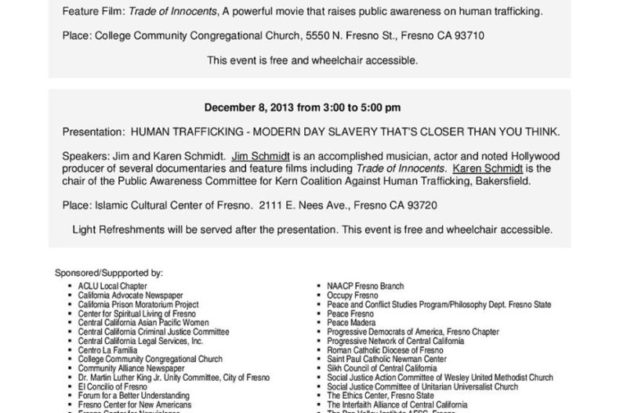
By Sudarshan Kapoor
“Whereas recognition of the inherent dignity and of the equal and inalienable rights of all members of the human family is the foundation of freedom, justice and peace in the world,

Whereas disregard and contempt for human rights have resulted in barbarous acts which have outraged the conscience of mankind, and the advent of a world in which human beings shall enjoy freedom of speech and belief and freedom from fear and want has been proclaimed as the highest aspiration of the common people.”
Thus begins the preamble to the Universal Declaration of Human Rights (UDHR), which was adopted by the UN General Assembly on Dec. 10, 1948, at the Palais de Chaillot in Paris. The UDHR document was the result of the bitter experience of World War II, atrocities committed during the Holocaust and the overthrow of the oppressive colonial system. It symbolized the hopes, dreams and aspirations of millions of peace-loving and justice-seeking people all over the world. It was a clarion call to the world governments to be accountable and respectful of human rights and basic freedoms of their citizens who were equally charged with the responsibility to hold their governments accountable for achieving these rights.
The world leaders assembled in Paris in 1948 had a powerful vision of a just social order and decided to complement the UN charter with the adoption of the UDHR as a road map to a peaceful world. It is noteworthy that Eleanor Roosevelt was the major driving force behind the creation and adoption of the UDHR. She was the chair of the drafting committee, which included some of the best minds from East and West.
What Are Human Rights?
The UDHR document consists of 30 articles that describe 1) civil and political rights such as the right to life, equality before the law and freedom of expression; 2) economic, social and cultural rights such as rights to work, social security, education and healthcare; and 3) collective rights such as the rights to development, self-determination and participation in community life. These human rights as mentioned in the document are universal and inalienable, interdependent and indivisible, egalitarian and non-discriminatory in character.
Human rights are rights that are inherent to all human beings regardless of nationality, place of residence, gender, national or ethnic origin, color, religion, language or any other status. Human rights provide a foundation for international human rights laws and are often expressed and guaranteed by governments when legislated, for example, civil rights in the United States. Human rights entail both rights and obligation at the government and individual level.
Commemoration in Fresno
Like many other communities in the United States and around the world, Fresno will be commemorating the 64th anniversary of the Universal Declaration of Human Rights. The commemoration will be observed on Dec. 8 from 3 p.m. to 5 p.m. at the College Community Congregational Church (5550 N. Fresno St.).
The topic selected by the planning committee for the commemoration is “Government Sanctioned Torture and Human Rights.” Professor Marjorie Cohen, an eminent scholar and author has been invited to speak on the topic. Cohen teaches international human rights and criminal law at Thomas Jefferson School of Law in San Diego. She is the former president of the National Lawyers Guild and lectures throughout the world on human rights and U.S. foreign policy. In 2008, she testified about government torture policy before the House Judiciary Committee Subcommittee on the Constitution, Civil Rights and Civil Liberties.
The commemoration event is sponsored and supported by 25 groups in Fresno. It includes several faith, peace and human rights groups. It is remarkable to notice the level of support behind this event. After all, human rights are our common heritage and their realization depends on the contributions that each and every one of us is willing to make individually and collectively now and in the future. Human rights are like the oxygen for all of us essential for our existence as human beings on this earth.
The event is free and handicap accessible. The public is invited. Light refreshments will be served. Tables will be available for display of material related to human rights for participating groups. For more information, contact Dr. Sudarshan Kapoor at 559-435-2212, Rev. Dr. Christopher Breedlove at 559-435-2690 or Ann Carruthers at 559-243-9390.
*****
Prof. Sudarshan Kapoor is the coordinator/facilitator of Human Rights Commemoration Day in Fresno. He was the founding director of the Peace and Conflict Studies program at Fresno State. Contact him at 559-435-2212 or skapoor@csufresno.edu.
